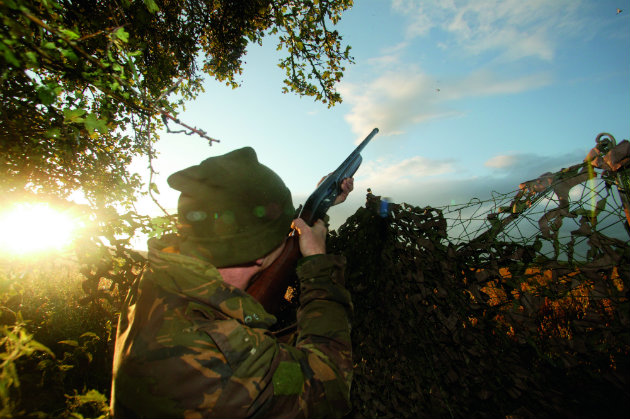Police commissioners declare their support for shooting
BASC questionnaire reveals that 25 of 40 newly elected police and crime commissioners for England and Wales support shooting, while none are classified as “neutral” or “anti”

Of the 25 supportive PCCs, six registered as being shooters themselves
More than half of the newly elected Police and Crime Commissioners (PCCs) for England and Wales have declare their support for shooting.
Their backing for the sport comes in response to a direct approach by members of BASC and others who lobbied candidates via a campaign website launched prior to the elections taking place.
Improving the firearms system
The questionnaire, sent out to candidates in an email, asked if they supported shooting according to the law and current codes of practice and if they were committed to improving the firearms licensing system.
Twenty-five out of the 40 PCCs elected responded in support, while none of those elected were classified as “neutral” or “anti”.
Among the 25 PCCs who came out in support were six who themselves enjoy, or have enjoyed shooting. These include Philip Seccombe (Cons), newly elected PCC for Warwickshire, Stephen Mold (Cons) newly elected for Nottinghamshire, Matthew Ellis (Cons) re-elected for Staffordshire and Paddy Tipping (Lab) re-elected for Nottinghamshire, who replied to the questionnaire stating: “I have been shooting with colleagues from BASC for years.” Martyn Underhill (Ind) PCC for Dorset and Jason Ablewhite (Cons) newly elected PCC for Cambridgeshire also replied in support of shooting. Both are, or have been at one time, keen clay pigeon shooters.
“I am a shooting man and have held a licence since the age of 15,” said Mr Ablewhite.
Results very encouraging
Commenting on the responses, BASC firearms office Paul Dale said: “The results of the election are very encouraging. BASC will now start the job of lobbying those PCCs whose position on shooting isn’t known and meeting those PPCs responsible for constabularies where there are issues with firearms licensing.”
Director of communications at BASC, Christopher Graffius, added that BASC is the only organisation that monitors the performance of each constabulary’s licensing team. “We’ve been doing this for 14 years, and working with firearms teams to help insure that (the licensing) job is done properly,” he said.
He also highlighted that key to an efficient licensing system is processing applications and renewals within a reasonable time limit and correctly interpreting Home Office guidance. “Delays are hugely significant,” he said. “PCCs need to ensure that their constabularies turn things round within an acceptable time limit so that people — whose livelihoods may in part rely on use of a shotgun — do not end up having to put their guns into storage.”
Fewer than 15% of voters turned out in the 41 English and Welsh police areas electing a PCC when the role was first created in 2012. Ministers blamed a lack of familiarity and understanding of the PCC’s role. This time round however, many areas saw a significantly higher voter turnout with an average increase of 22-25%.








